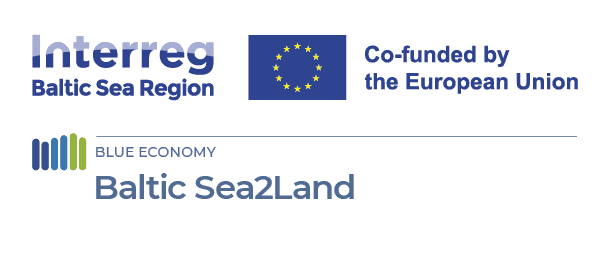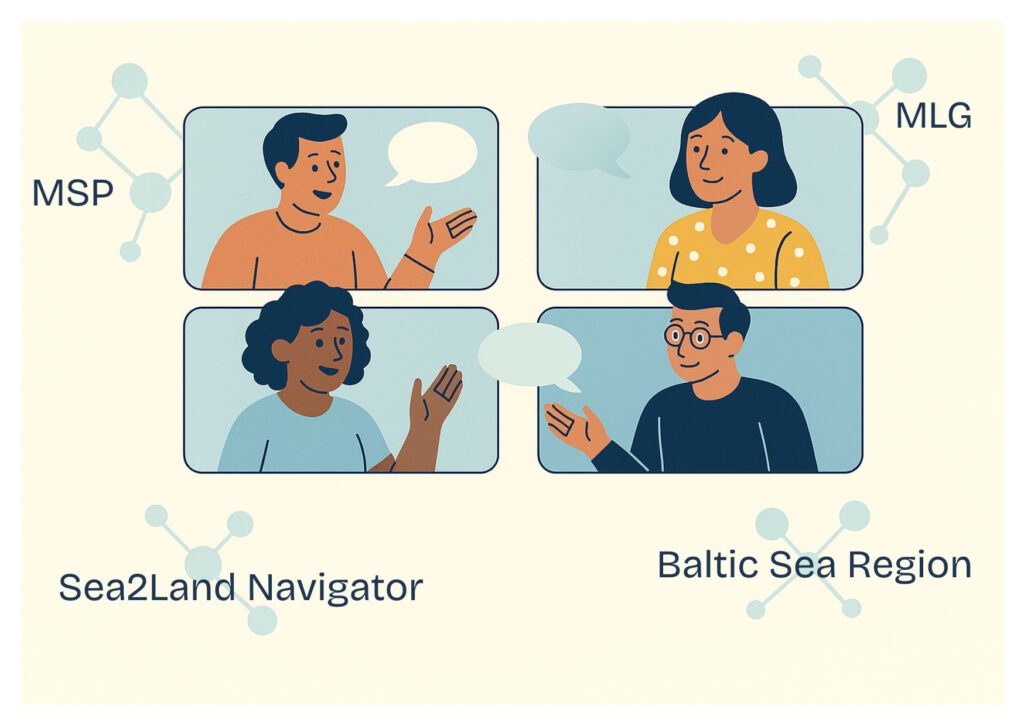
Exploring Marine Spatial Planning Through Dialogue: World Café Event
04 September 2025
At the end of summer Baltic Sea2Land project partners from across the Baltic region gathered online for a collaborative World Café session focused on Marine Spatial Planning (MSP) organized by partners from Poland. The event was part of the Baltic Sea2Land initiative, aiming to foster meaningful conversations around the use of the Navigator tool in addressing regional MSP challenges.

What is the World Café Method?
The World Café is a structured conversational process that encourages open dialogue and knowledge sharing. Participants rotate through small-group discussions, exploring key questions and themes. This method is particularly effective for surfacing collective insights and fostering innovation through informal yet focused conversations.
Focus Areas and Trigger Questions
The session led by Polish team centered around the Sea2Land Navigator platform, designed to support MSP processes. Participants engaged with a series of trigger questions to guide their discussions, including:
- What are the data management challenges in MSP, and how can Navigator help?
- What are the challenges and opportunities of using Navigator in MSP?
- Which Navigator tools could be most useful in everyday work?
- How could the MLG (Multi-Level Governance) tool be incorporated into planning?
- Can Navigator support transboundary cooperation, stakeholder engagement, and climate change adaptation?
- How can Navigator address the most pressing issues in Baltic MSP?
- Is the possibility of learning from regionwide case studies within Navigator helpful during planning stages?
These questions made a dialogue, allowing participants share experiences, identify gaps, and explore new ways of integrating digital tools into their planning workflows.
Outcomes and Reflections
The event highlighted the value of peer-to-peer learning and the importance of adaptable tools in tackling complex MSP challenges. Participants appreciated the opportunity to reflect on real-world applications of Navigator and to envision its role in future planning efforts across the Baltic region.





